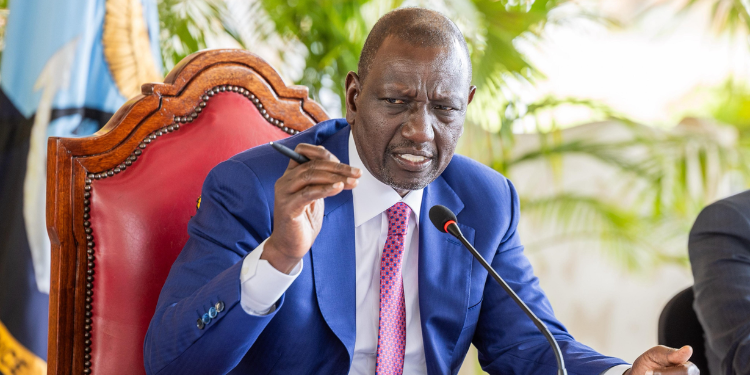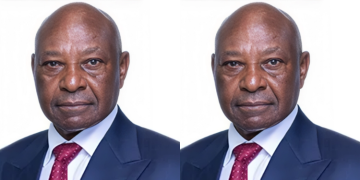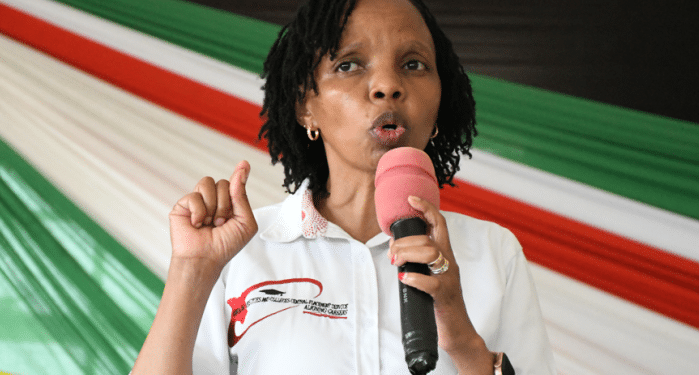The Kenya Universities and Colleges Central Placement Service (KUCCPS) has explained why it has not yet opened its portal for online applications for university entries.
While appearing before Members of Parliament on Thursday, February 20, KUCCPS Chief Executive Officer (CEO) Agnes Wahome said the delay was also due to a court ruling that declared the new university funding model unconstitutional.
She mentioned that the judgment delivered Justice Chacha Mwita December 20 last year did not provide clear guidance on how to handle students, including those already placed in various courses.
Wahome further revealed that, to avert a funding crisis in higher education, the placement service had to delay opening its portal for university applications until the matter is resolved
“The judgement that was delivered by Justice Mwita on the 20th did not give a direction on how to treat students even those that we had placed two years ago and the direction moving forward when he said it was unconstitutional,” Wahome said.
“Looking at where we have come from, we were trying to avert the funding crisis in the Higher education institutions.”

KUCCPS CEO Says Court Ruling on University Funding Model Causing Delays
Wahome explained that KUCCPS had taken legal action to address the uncertainty caused by the court’s ruling.
She stated that they had filed a request for the court to suspend or grant a stay of execution of the judgment which suspended the new funding model.
“We have gone to court and filed a request that the court suspends or grant a stay of the execution of the judgement given on December 20,” Wahome stated.
“We are happy it was taken as an urgent matter, and we are awaiting a ruling next week. That will be able to give us a direction even as we open the portal.”
Also Read: KUCCPS Launches New Course for C Students
At the same time Wahome also clarified that the suspension of the new university funding did not in any way affect the course application for Technical Vocational Education and Training (TVET) and Kenya Medical Training College (KMTC) slots.
“We have considered students who are not going for university courses that is why we have the portal open for TVET and KMTC and it’s going on as we wait for the direction for university,” the KUCCPS boss said.
Justice Chacha Mwita ruled that the model violated students’ legitimate expectations and was implemented without adequate public participation, despite its significant impact on higher education.
“The government has a constitutional responsibility to fund public universities. Passing this burden onto parents is a violation of the Constitution,” said Mwita.
Court Ruling on New Education Funding Model
He added that the model should have undergone public consultation to incorporate citizens’ views before implementation.
“The changes in the funding model did not adhere to the necessary legal provisions in its creation,” he noted.
However, the Universities Fund and the Higher Education Loans Board (HELB) appealed the High Court judgment arguing that its consequences could halt learning in universities because of delays in disbursing funds for students continuing their studies.
Also Read: KUCCPS Announces Cut Off Grades for Certificate, Diploma and Degree Courses
They implied that Justice Mwita erred in both law and fact and that the judgement has made it impossible for them to disburse any funds to universities or the students therein, particularly those in the first and second years of studies who were the primary beneficiaries of the unconstitutional funding model.
Universities Fund CEO Geoffrey Monari, in his affidavit, stated that the funding body implemented the model after robust public participation, ensuring equity and equality, in contrast to the previous model, which focused solely on quality.
He also warned that the judgment could lead to a stalemate in the education sector, as the funding model is no longer able to disburse funds to students.
In further defense of the outlawed model, Monari emphasized that it was more cost-effective and efficient in financing higher education.
Follow our WhatsApp Channel and join our WhatsApp Group for real-time news updates.











































































